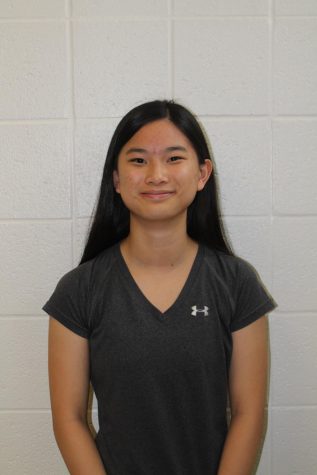Students, lawyers split over Harvard v. SFFA affirmative action court case
December 3, 2018
Senior Katherine Luo has played piano for over 10 years, has been a committed member of her Chinese school since she was three and has participated extensively in various other Chinese community service organizations. Despite the time and dedication she has put into these extracurriculars, most of them didn’t make it in her college application. She worried that looking too much like a “stereotypical Asian” could hurt her chances of admission, so she omitted many of the activities she cares about the most.
“I feel like I lost a little part of me in my college application,” Luo said. “Most of what I do is Chinese related because it’s a big part of who I am. But if you look on my college app, it doesn’t look like that.”
Many other Asian Americans now share similar worries after a 2013 Harvard University internal investigation found the school had shown bias against Asian-American applicants in the admissions process. But they never released or acted upon the findings. In 2014, Students for Fair Admissions, an anti-affirmative action group, filed a lawsuit against Harvard alleging that admissions officers discriminate against Asian-American applicants to create a more racially diverse student body. The case reached the Boston Federal District Court in October.
SFFA claims that Harvard’s admissions policies violate Title IV of the Civil Rights Act of 1964, which prohibits discrimination based on race, color and national origin for programs receiving money from the government.
President John F. Kennedy implemented affirmative action in the U.S. in 1961 to provide minorities with equal opportunities in college admissions. Since then, the white population at Ivy League Universities has plummeted, while the minority population has begun to increase.
In the past, the Supreme Court ruled that colleges may not set racial quotas, but admissions officers can consider race as a minor factor in the admissions process. The court case is the first time a group of Asian Americans is challenging the role of affirmative action in college admissions.
Every Ivy League school, several other elite universities, the American Civil Liberties Union and over 500 professionals have filed amicus curiae briefs — where a group not involved in the case submits a brief to sway the court’s decision — in support of Harvard’s right to consider race in the process.
The ACLU argued that Harvard’s intention to create a diverse student body is a worthy goal.
“The ACLU argues a whole-person, race-conscious admissions process furthers a university’s academic freedom to assemble a diverse student body,” the brief said. “Should any admission practices unfairly disadvantage any group, the solution is to amend the practice but not to discard wholesale a diversity program that benefits all students.”
Senior Breanna McDonald said she believes the case is pitting different minority groups against each other.
“I hate that SFFA is using Asian students to take away something that can help students of color,” McDonald said. “That’s just trying to get that divide between people. That’s something that we as minority students need to realize. In order for us to help each other, we need to understand each other’s differences and focus on who is doing this to us and how can we all collectively work together to fix that issue.”
Although SFFA submitted the case over four years ago, motions and court hearings have only revealed select parts of Harvard’s admissions process.
Duke University freshman Aaron Zhao (‘18) said his college experience made him appreciate the diversity that affirmative action promotes, despite feeling worried when he was in high school that affirmative action was working against him.
“Once I got to college, I realized how much everyone has to bring,” Zhao said. “I know a lot of people here who wouldn’t have made it to Duke without affirmative action based on their socioeconomic status. Without them, I feel like my experience would be really different.”
In response to the case, Harvard has explicitly outlined when and how admissions officers may consider an applicant’s race during the admissions process.
Judge Allison Burroughs will hear the case, but neither side believes she will have the final say; regardless of the verdict, the other side is almost guaranteed to appeal. Burroughs is expected to reach a decision in the spring of 2019, according to The Harvard Crimson.
No matter what the courts decide, Zhao said he believes college is an important time for students to meet people from different backgrounds and challenge their own perspectives.
“Coming here, I’ve met people from all over the world, in different financial situations, who bring so much to the classroom,” Zhao said. “In my biomedical class, there’s this guy from Togo, and he himself said that he wouldn’t be here if affirmative action had not been in play. He adds so much to the conversation that none of us can just because he’s from a different side of the world.”







